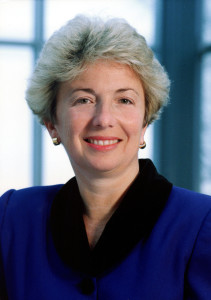The Career of a female Engineer
Over 35 Year experience as an engineer
The Career of Deborah L. Grubbe a female engineer
Name: Deborah L. Grubbe, PE, CEng., FAIChE, FIChemE
Industry Sector: Chemicals, Oil & Gas, Capital Project Management
Company: Operations and Safety Solutions, LLC
Years as a qualified Engineer: 37
1. When did you first realise you wanted to become an Engineer?
It came in stages. When I was 14 years of age, I realized that I needed to be able to feed, clothe, transport and protect myself, and that I could not count on someone doing that for me in life. I liked math and science in school, and wanted to be able to support myself in a good life. When I was 16, my math teacher guided me to engineering, after telling me that the world did not need more math teachers and that engineers made an excellent salary. After exploring engineering for a week at Purdue University that summer, I was hooked!
2. Did you attend College/ University? If so, where/ what did you study?
I was the first person in my family to attend university, as my parents’ were first and second generation US immigrants. I started out studying biomedical engineering, and switched to chemical engineering with a biomedical option, partly because there were more jobs for chemical engineers than bio-engineers in the 1970’s. The bio-engineering fields were too new back then, and I knew I did not want to do research.
Purdue University, in West Lafayette, Indiana, USA, was the right fit for me. I also was a Churchill Scholar and did one year’s graduate work at the University of Cambridge in the UK. That was a life changing experience for me. It was fascinating to live outside the USA. I studied chemical engineering in both locations.
3. Describe your first job as an Engineer? What were your responsibilities in this role?
I was able to have 3 summer internships during my university years. I worked in a Bio-Mathematical Laboratory for a physician, a heat transfer research lab for an oil and gas services firm, and in design for large oil and gas major. My first full time engineering job was at a chemical manufacturing plant where I had to write operating instructions, train operators, and provide start up assistance for an acid vaporizer. It was an excellent learning about equipment and the plant operations, and it shaped the rest of my career.
4. What sort of role would you recommend to someone who is at the start of their engineering career?
Engineers hold so many different roles; it is hard to give advice in this area. I would learn as much as possible about the different types of jobs: research, marketing, sales, manufacturing, engineering design, teaching and construction. Also, assess your likes and skills, and select a type of role that “fits you.” If you select well, you will love the job, do well with the role, and your career will be off to a strong start!
Additionally, I strongly recommend that any young engineer get involved in activities outside of work. It builds your leadership skills, your global perspective, and your community reach and reputation.
5. What advice would you give a female looking to start a career in engineering?
Go for it! It is a wonderful career! I would caution in three areas, and this also applies to men; however, it fits women closer:
1) Do not let other people’s negative opinions about you or your skills affect your view of what is possible. My high school guidance counsellor told me in 1973 that women could not do engineering, and that I would never make it as a woman engineer. Four years later I visited him and showed him my diploma, and asked him to NEVER tell someone they could not do. Three years later he saw my mother in town and told her that I had taught him a lesson that he would never forget.
2) Have a stiff spine when you need one and a flexible spine when you need to “give and take.” Too often, I believe people underestimate their power in a given situation, and do not effectively “push back” when needed. Since engineering women are few and far between, there is less opportunity for women to fully understand the context of their situation and their options, and since some men can be “quite unfriendly” in the work place, the chance for mentoring is greatly reduced. This brings me to point.
3) Men and women who are weak in character are usually toxic in organizational environments. I have found that I get along best with men and women who are secure in who they are, what they do and who understand that business is truly a team sport. I have multiple examples (probably for a memoir) of instances where I have worked with weak men who believe that they can control what I say and how I act. They have learned that I never compromise my values around what is right and true. The one item you own in life is YOUR reputation!
6. What is your current role? And what are your responsibilities?
I currently own a consulting business that offers operations, safety and process safety analyses and expertise to large and small firms all around the world. It was always my dream to leave the business world in my 50’s, start up my own business and to keep working into my later years! I now have the flexibility and the income to take on challenges that I would have struggled to do with my prior executive positions: develop and team teach a university course, co-author a book on Process Safety Management and sit on the boards of two, new technology start-up companies. My current project is working with another engineer to author a book on an “Engineer’s Professional Responsibility.” Multiple people have encouraged me to draft a book about women in engineering; however, I am still thinking about that.
7. What has been the most challenging engineering project you have worked on in your career?
The most challenging engineering project was the construction of a series of laboratories in the early part of my career. I was 28 years old, and I was one of two women in construction at the time (there were 200 men). Some of my management doubted my abilities, partly because I was young, but one of my bosses had faith in me, and he let me know that he would support me. Luckily for me, he was the manager being held accountable for the project outcome. We were all successful, and the client’s needs were met safely, on time and on budget.
8. Do you see a shift with the industry can you see more females entering engineering?
Yes! When I was a student, there were 2% women in engineering, and today it is close to 30% in some engineering disciplines. The numbers have definitely increased, and everyone should feel good about that. What is still an issue, though, is that the women have more options, and they choose to not stay in engineering for various reasons. I choose not to place blame, because there are many reasons why women leave the engineering profession. People achieve prominence in their profession through exceeding expectations year after year. If you are not present to contribute, it becomes harder to achieve prominence. This “rule of thumb” is true for men and women; however, men have a tendency to stay engaged and “stick it out.”
9. How can companies support with attracting more female engineers into the industry?
Based on my experience, I am going to assume that industry will provide the jobs for qualified engineers, both men and women. Without the jobs, it is hard to increase the number of women engineers. Secondly, I believe that industry will continue to fund and involve women in their marketing efforts. Lastly, women engineers, like the men they work with, are professionals capable of handling the technical challenges that all engineers are asked to solve, but often with a perspective that complements those of men. Women engineers are professionals. We happen to come wrapped in a female-type package, but it is the brain that is hired by the firm. Sometimes both genders confuse their professional roles with their personal roles. It is here where I commonly see issues arise in the workplace. One example would be the over protective male manager who does not allow the woman engineer to push ahead, because he sees her as a “daughter like” figure and wants to protect her. The corollary is the woman engineer that does not step out and relies too much on a male colleague to do her communicating for her. Industry could assist here by talking about various workplace behaviours that could be “dis-enabling,” thereby helping to build better awareness.
10. Would you use the Internet to try and get in touch with other industry experts?
I suppose I have to answer that, “Yes!” because that is how PIF found me! I think the real answer is, “it depends on the person, the circumstances, and the situation.”
11. How do you keep up-to-date with the latest technologies in your sector?
Read. Read. Read. Discuss with colleagues. Engineers can never stop learning, or one risks obsolescence due to constantly growing and evolving technologies! I started university with a slide rule, and taught myself FORTRAN! I suppose this is showing my age!!
12. Finally, how do you take your mind off work when you’re at home?
Hobbies/ Interests?
I love water sports: swimming, water skiing, boating. These sports require an intensity that forces me to forget work and focus on the tasks at hand. It is wonderful relaxation! I first water skied when I was 10, and perhaps being around boat motors that did not work when you wanted to go skiing helped me subliminally learn about engineering.
We hope you have enjoyed reading this interview, it would be great to hear your comments on this subject. Please see other engineers interviews here.
Get the latest process industry news
Interested in receiving even more industry-leading news from Process Industry Forum delivered directly to your inbox? Then sign up to our free newsletter. Bringing you the latest news, trends, innovations and opinion from across the process industry, our exclusive newsletter gives you all the industry insights of the moment in one, easy-to-digest bulletin. Stay ahead of the competition with regular process industry news instalments from PIF.

